2014: The year hashtag campaigns reached our living rooms
There was a time when 'hash', i.e. #, was simply known as the number sign. Today, the modest character often used in information technology has assumed a much more powerful role on social media platforms - representation of hashtags.
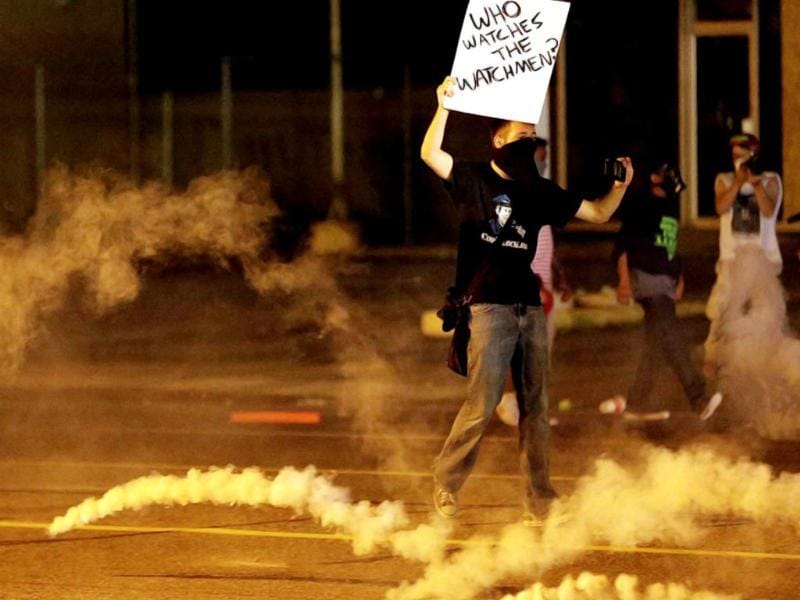
There was a time when 'hash', i.e. #, was simply known as the number sign. Today, the modest character often used in information technology has assumed a much more powerful role on social media platforms -- representation of hashtags.
What started as a unique way of grouping and contextualising on Twitter in 2009, has now become the face of people's opinions, emotions, anger and more in the form of 'trends'.
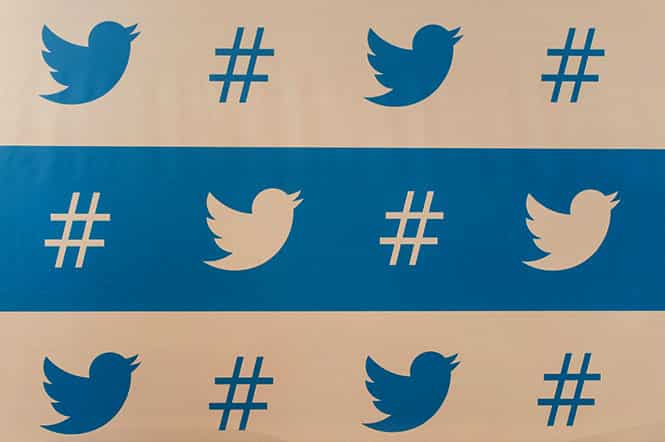

2014 can easily be termed as the year of hashtag campaigns. It was also the year when these campaigns reached our living rooms -- either in the form of our involvement or in the form of media reports. Here's a look at some of the most notable examples of Twitter activism we saw this year:
1. #IceBucketChallenge
The Ice Bucket Challenge, or the ALS Ice Bucket Challenge, was a campaign to promote awareness about amyotrophic lateral sclerosis (ALS), also known as Lou Gehrig's Disease, and to encourage donations towards research on the disease.
The challenge was simple: All you needed to do was dump a bucket of ice water on your head, and then nominate others to do the same.
The campaign went viral with over 2 million videos posted about it between June and August. Enthusiastic participation from celebs across the world further helped the effort.
(Do.not.miss.George.Takei.)
The Ice Bucket Challenge has since been touted as the strongest case study on the power of social media with over 25 million Facebook conversations and over 5 million Twitter mentions in a month. According to Wikipedia, hits to its English page on ALS 'grew from an average of 163,300 views per month to 2.89 million views in August 2014, and similar increases occurred in the Spanish and German Wikipedias.'
Further, the ALS Association reported it received $94.3 million in donations between July 29 and August 27, compared to $2.7 million during the same time period last year.
2. #BringBackOurGirls
On the night of April 14 this year, hundreds of schoolgirls were kidnapped from their government school in Chibok, Nigeria, by an Islamist militant group called Boko Haram.
The group claimed that the girls had been converted to Islam and will eventually be married to Boko Haram militants or sold off. The abduction and subsequent threats sparked outrage across the world triggering a Twitter campaign #BringBackOurGirls.
It soon spread across social media and thousands expressed anger against the terrorists and the lack of action by authorities. Celebrated names like Michelle Obama, Justin Timberlake, Malala Yousafzai, Bradley Cooper, Ellen DeGeneres and Anne Hathaway posted pictures holding placards that read 'Bring Back Our Girls' and 'Real Men Don't Buy Girls'.
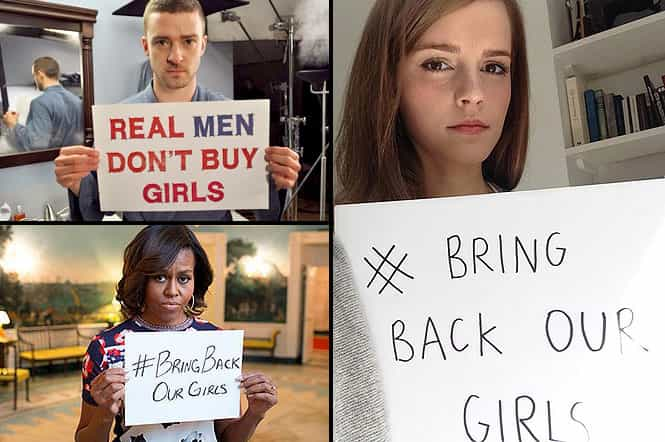

Actress Salma Hayek even took a placard to the Cannes Film Festival red carpet.
The campaign was seen as a sign of people taking a stand against terrorism but, many had one question on their mind: 'Can a Twitter campaign save the kidnapped girls?'
Some girls were freed days into the mass abduction; however, eight months on, 219 still remain captive.
3. #KashmirFloodRelief
During the devastating floods in Jammu and Kashmir in September, Twitter presented a shining example of online activism creating valuable help for those caught in a tragedy.
A group of digital volunteers -- some based as far away as the United States and Singapore -- emerged as unlikely heroes, whose social media activity helped save thousands of stranded people.
What started initially as widespread tweets with hashtag #JKfloodrelief or #KashmirFloodRelief calling out for rescue and donations, quickly turned into an organised flood relief effort.
These volunteers set-up a Twitter account, @jkfloodrelief, to curate and disseminate relief and rescue information. Eventually, they also set-up a dedicated website www.jkfloodrelief.org (now InCrisisRelief.org). Their information was so reliable that even Indian Army and the National Disaster Management Authority monitored their updates and acted upon them.
Wondering how to use Social Media for a good cause? Check these 4 steps and RT. pic.twitter.com/WTHWLKLBEK#NEFloodRelief#JKFloodRelief
— VOICE@InCrisisRelief (@InCrisisRelief)
October 5, 2014
Eventually, the Army set up a dedicated WhatsApp group to help relay rescue requests and information with ease.
The group has gone on to extend their efforts for relief operations in flood affected areas of the North-east and can now be found on Twitter as @InCrisisRelief.
4. #YesAllWomen
On May 23, Elliot Rodger went off on a killing spree near the campus of University of California. Rodger killed six people and injured thirteen others before eventually committing suicide.
Just before the shooting, the 22-year-old uploaded a video on YouTube 'Elliot Rodger's Retribution' in which he explained his plan and his reasons for doing so. In a misogynistic rant, he talked about targeting women for 'rejecting' him as a sexual partner. He also talked about punishing sexually active men for 'living better lives' than him.
The incident enraged thousands across the world, sparking a debate about sexism and misogyny. Many men posted messages with #NotAllMen, meaning 'not all men abuse women' and in response, women used #YesAllWomen to share examples of discrimination and misogyny they faced every day.
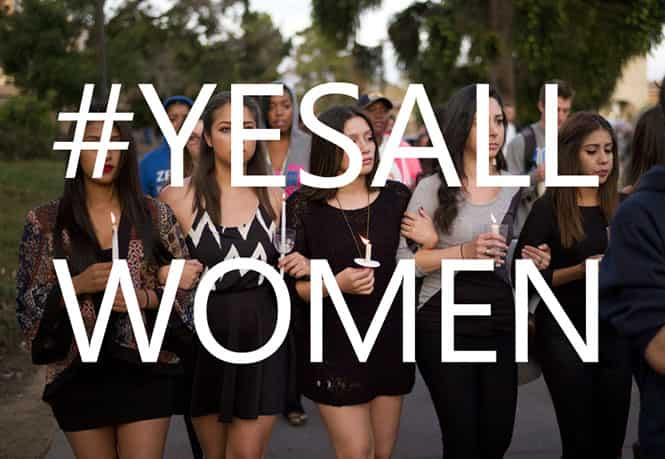

The hashtag sparked conversations across social media platforms, encouraging people to talk about gender inequality and selective harassment of women.
The trend also inspired a powerful Tumblr thread called WhenWomenRefuse where women and friends and families of affected women shared tragic stories of abuse and helpessness they suffered when they 'said no to a man'.
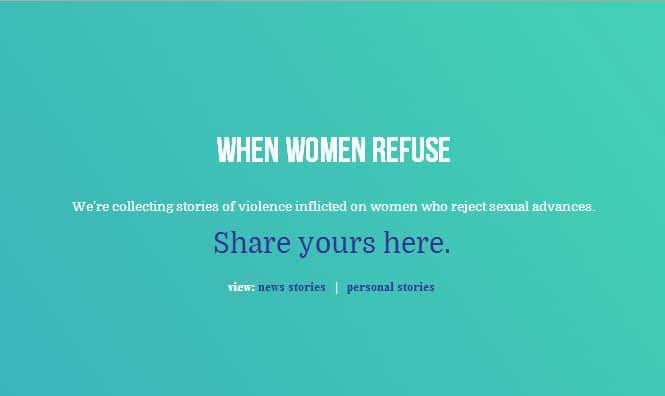

5. #Ferguson
The shooting of 18-year-old black kid Michael Brown by a white police officer Darren Wilson, triggered an unforgettable protest in Ferguson, a suburb in Missouri.
The protest, however, wasn't limited to the streets of Ferguson. Many hashtags like #BlackLivesMatter and #IamMikeBrown were born over months of Twitter activism.
Support poured in for Wilson too but, overall for online activists, the incident was a protest against racism. After a short lull, the hashtags returned when the grand jury decided to not indict the policeman.
Right now at a #BlackLivesMatter protest in #Portland Oregon. #ICantBreathe#EricGarner#NYPDShooting#NYPDpic.twitter.com/vjnFaVGSSK
— Bipartisan Report (@Bipartisanism)
December 21, 2014
Another case
On July 17, 2014, Eric Garner died in New York, after a police officer put him in what many described as a chokehold. According to reports, Garner said 'I can't breathe' eleven times while lying face down as officers restrained him. Garner eventually lost consciousness and was pronounced DOA when taken to a hospital. The incident sparked yet another debate on racism and police brutality with #Icantbreathe.
Because if we don't who will? #ICantBreathe#BlackLivesMatterpic.twitter.com/eEDxVf7HdH
— David Johns (@MrDavidJohns)
December 21, 2014
6. #UmbrellaMovement
To understand the passion behind this hashtag, one needs to know the history between China and Hong Kong.
Hong Kong spent over 150 years under British Colonial rule. In 1997, in a political deal 'One Country, Two Systems', Britain handed the tourist hub back to China. The deal gave Hong Kong some freedoms, like freedom of the press, which mainland Chinese people don't have.
In 2017, Hong Kong was to elect its first own leader. But China announced that people would only be able to vote for candidates selected by the government.
On September 26, hundreds of students gathered to protest against Chinese control and marked the start of the Umbrella Movement, umbrella being the symbol of defiance.
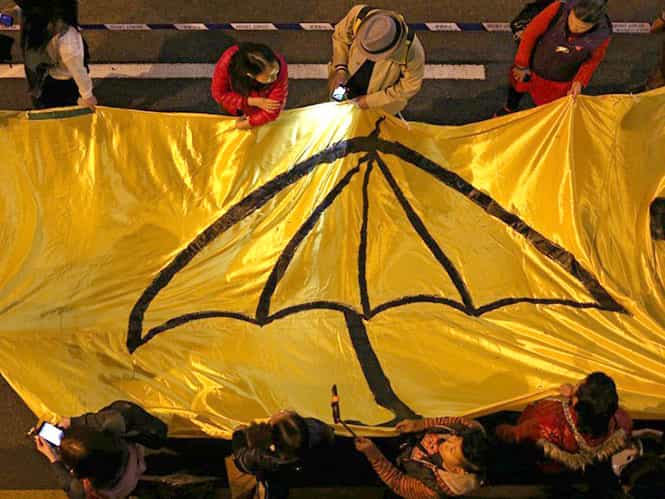

The movement found support of people across the world on Twitter with #UmbrellaMovement. It gained momentum when inspiring pictures of the protests made their way to social media.
The end of #OccupyHK with a key message : 'We'll be back'. #UmbrellaMovement#UmbrellaRevolution#Hongkongpic.twitter.com/gApK1i1pIw
— ?? (@xiexuee)
December 19, 2014
Hong Kong's struggle, however, continues with failed negotiations and a government-protesters deadlock.
7. #KissofLove
India's fight against moral-policing wasn't any less inspiring.
It all started with a Facebook page inviting youth across Kerala to participate in the 'Kiss of Love' on Cochin Marine Drive -- a movement that received support from across the country.
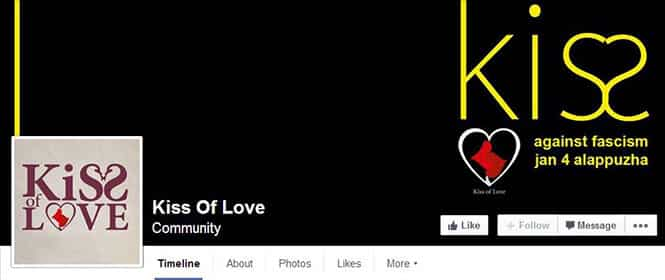

The protest against moral policing by religious and political groups like VHP, Shiv Sena, Bajrang Dal, etc. inspired more cities like Delhi, Mumbai and Kolkata to join and organise their own campaigns.
8. #PutOutYourBats
The tragic death of Phil Hughes, after being struck on the head by a bouncer, shocked people across the world. Immense support poured in for Hughes' family and the bowler Sean Abbott.
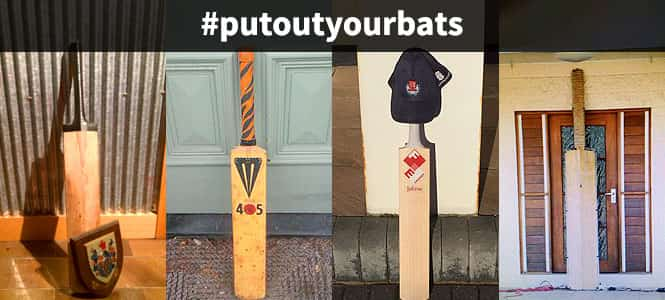

#PutOutYourBats was a touching tribute to Hughes in which people across the globe kept their bats and kits outside their homes as a mark of respect to the cricketer.
Heartfelt pictures swept the internet and brought a grieving world together.
The Australian cricket team's bats at @TheAdelaideOval today #PutOutYourBats#AUSvINDpic.twitter.com/odDZoZRjro
— Aust Cricketers Assn (@ACA_Players)
December 9, 2014
9. #illridewithyou
When a gunman took 16 people hostage inside a cafe in Sydney's Martin Place, some expressed concerns about the Muslim community in Australia. A woman posted on Facebook that she saw a Muslim woman take off her hijab, ostensibly in fear, and that she offered her protection in case she feared retaliation.
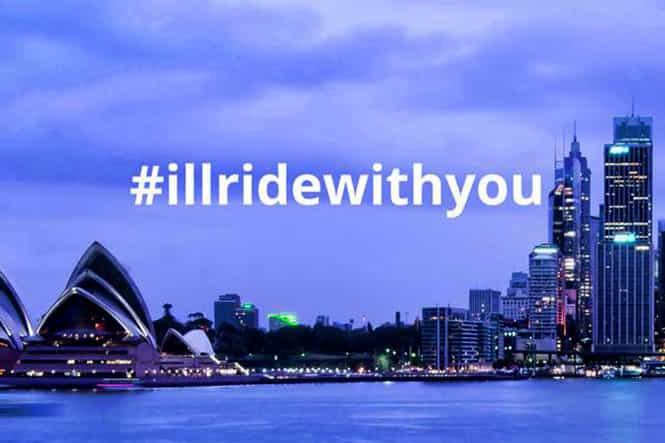

The post inspired an Australian Twitter user to start another beautiful trend - #illridewithyou - to tell Muslims in Australia that they needn't live in fear. Many tweeted their whereabouts to reach out to those looking for help or company.
The hashtag fetched over 120 thousand tweets in a day and received praise from around the world.
Wonderful ride with @osmankarolia and Sydney Muslim Cyclists. #LakembaMosque to #MartinPlace. #illridewithyou#wymtmpic.twitter.com/bhPAvjaZlx
— Andy Matthews (@matthews24)
December 21, 2014
10. #IndiaWithPakistan
As reports of the Pakistan Taliban attacking a school in Peshawar broke, users took to social media platforms expressing their anger at the terrorist organisation targeting innocent children.
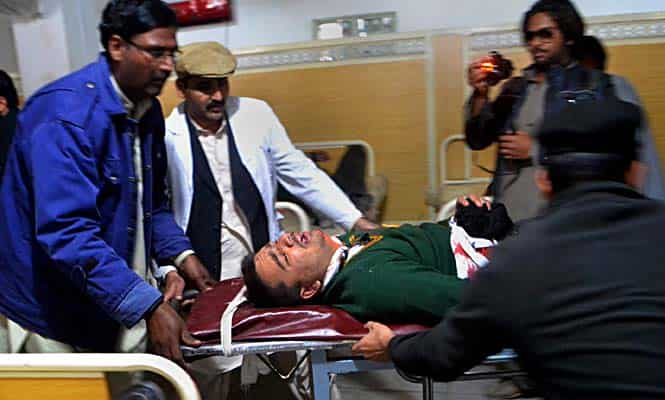

Taking inspiration from the #illridewithyou trend, entrepreneur and columnist Tehseen Poonawalla tweeted, 'Cause we will not bow down to these cowards. Cause our children are our future so let us hashtag #IndiawithPakistan !!' and within hours the trend caught on.
Clocking over a million tweets in four days, the hashtag became the talking point around the world as bitterness between the two countries is hardly a secret.
Though the hashtag wasn't always received positively, the effort didn't go unnoticed in Pakistan. Many expressed gratitude for the thousands of tweets expressing solidarity with Pakistan -- a country struggling with severe political and economic crisis and often rapped as the terrorism hub of the world.
As a nation grieves, a neighbour stands up in support. The story of #IndiaWithPakistan in Tweets via @TwitterReverbhttp://t.co/jciVxJJHag
— Twitter India (@TwitterIndia)
December 17, 2014
Mere two days after the tragedy, Pakistan granted bail to Zakiur Rehman Lakhvi, the alleged mastermind of the 2008 Mumbai attacks that claimed 166 lives.
Pakistan responded to India's call for solidarity with the hashtag #PakWithIndiaNoBailToLakhvi with many Pakistani users expressing strong opposition to a court's decision to set Lakhvi free.
Catch all the Latest Tech News, Mobile News, Laptop News, Gaming news, Wearables News , How To News, also keep up with us on Whatsapp channel,Twitter, Facebook, Google News, and Instagram. For our latest videos, subscribe to our YouTube channel.































